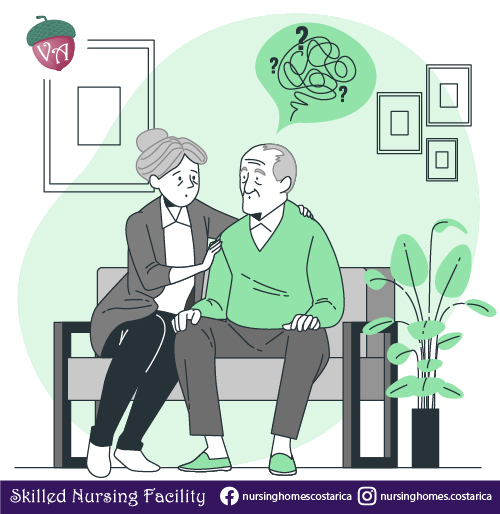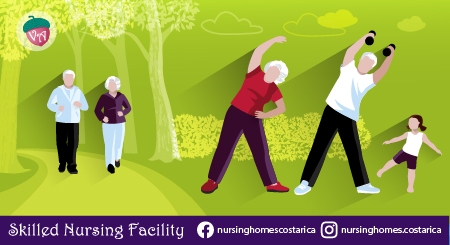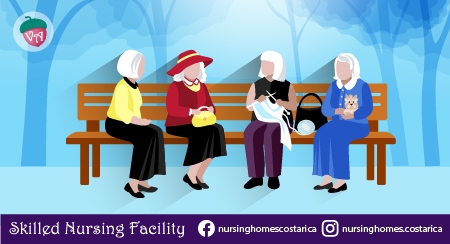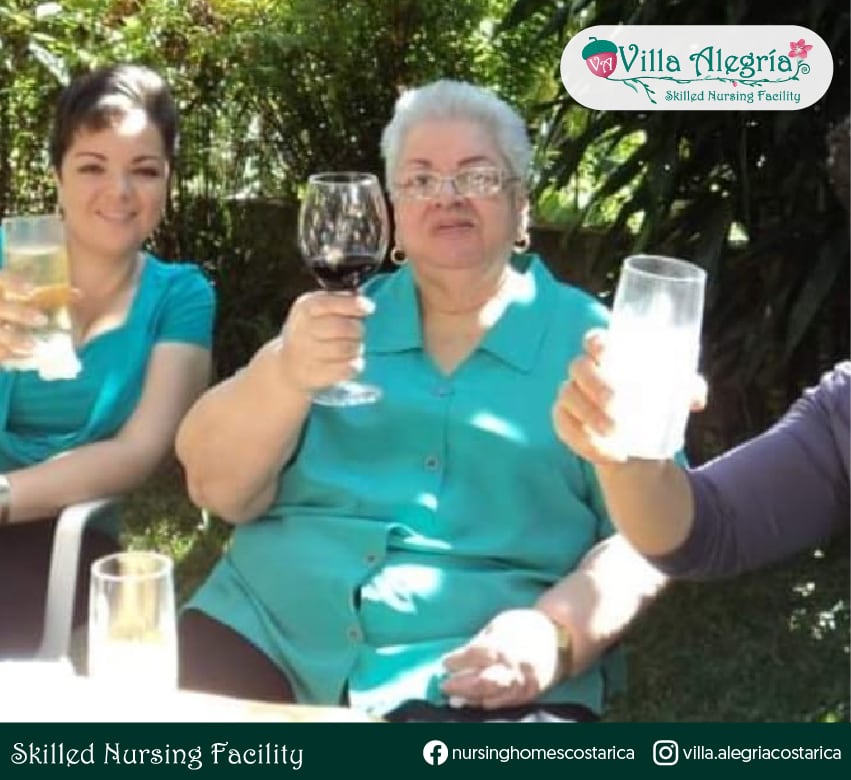Welcome to a profound exploration of the human mind, where we delve into the early signs of Alzheimer’s, those subtle cognitive whispers that often go unnoticed. In this informative journey, we will immerse ourselves in the complexity of these cognitive whispers, unraveling the importance of recognizing them before they become more apparent.
Imagine the mind as an open book, where each page tells a unique story. However, sometimes, these pages begin to fade subtly, revealing the first hints of a cognitive challenge. Throughout this article, we will examine in detail why it is crucial to identify these cognitive whispers in the early stages. This analysis will not only provide essential information about the early signs of Alzheimer’s but also emphasize the need for early understanding to address this complex landscape.
Get ready for an informative journey that will equip you with the knowledge needed to comprehend and confront this aspect of brain health. Let’s explore together the early signs of Alzheimer’s from an educational and pragmatic perspective.
Unraveling the Alzheimer’s Enigma
Alzheimer’s disease is a progressive brain disorder that affects memory, thinking, and the ability to perform daily tasks. In most people, the first symptoms manifest in the later stages of life, especially after the age of 65. It is estimated that more than 6 million people in the United States, mostly aged 65 and older, may face this disease.
Impact on Individuals:
This disease not only impacts memory but also disrupts cognitive functions such as reasoning and the ability to carry out daily activities. In advanced stages, it can influence personality and behavior, making individuals completely dependent on others for care. Alzheimer’s has become the seventh leading cause of death in the United States and is the most common form of dementia in older adults.
Dementia, in simple terms, is the progressive loss of cognitive and behavioral functions affecting daily life. In this section, we seek to offer a clear and accessible understanding. Alzheimer’s disease not only affects those who suffer from it but also has a significant effect on their loved ones and caregivers. As we delve deeper, it is essential to understand how signs and symptoms manifest over time and how they affect people’s daily lives.
Decoding Initial Symptoms of Alzheimer’s: Everything You Need to Know

Early Signs of Alzheimer’s:
-
- Identifying Initial Signals:
In this section, we will delve into the early signs of Alzheimer’s, offering a more comprehensive view of the indicators that may manifest before the condition fully develops. Recognizing these signals is crucial for facilitating early diagnosis and enabling interventions that not only help preserve the quality of life but also open opportunities for more effective treatments.
-
- Memory Issues:
• Forgetting recent information
• The inability to retain recent details, such as recent conversations or events.
2. Excessive dependence on reminders and memory aids:
• Constant need to rely on notes, electronic reminders, or the assistance of others to remember basic information.
3. Thinking and Reasoning Difficulties
• Problems following and participating in conversations
• Experiencing difficulties in keeping track of a conversation or remembering key points.
4. Difficulties in solving everyday problems:
• Encountering obstacles in addressing tasks that were previously handled with ease, such as planning daily activities or solving simple problems.
5. Changes in Behavior and Personality:
• Mood alterations without apparent reason
• Experiencing unexplained emotional changes, such as irritability, sadness, or anxiety.
6. Variations in personality, such as a loss of initiative:
• Notable changes in motivation and previous initiative, showing less interest in activities that were previously rewarding.
7. Issues with Daily Activities:
• Difficulties completing routine tasks
• Facing challenges in carrying out routine daily activities, from preparing meals to maintaining the home.
8. Challenges in planning and executing activities:
• Experiencing difficulties in planning future events or executing plans, which can affect independence and autonomy.
Importance of Early Diagnosis
Early recognition of these signs not only allows for more effective intervention but also provides an opportunity to participate in clinical studies and research aimed at better understanding the disease and developing innovative treatments. Furthermore, early diagnosis can significantly improve the quality of life by enabling better disease management and the implementation of strategies to address associated challenges. If you suspect that someone may be experiencing these signs, consulting with a healthcare professional is essential for a proper evaluation and guidance on next steps.
Mind Health Guardians: Practical Strategies for Alzheimer’s Prevention
- Maintain a Healthy Diet:
A diet rich in antioxidants and omega-3 fatty acids can contribute to brain health. Include foods such as fresh fruits and vegetables, fish, nuts, and olive oil in your daily diet.
- Stimulate Your Mind Regularly:
Keep your brain active by engaging in activities that challenge it, such as puzzles, memory games, reading, and learning new skills. Stimulating the mind can strengthen neural connections and help preserve cognitive function.
- Engage in Regular Physical Activity:
Regular exercise benefits not only the body but also the brain. Physical activity increases blood flow to the brain, promoting cardiovascular health and reducing the risk of developing conditions that could affect brain function.

- Control Your Blood Pressure and Sugar Levels:
Maintaining controlled blood pressure and blood sugar levels is essential for brain health. Poorly managed hypertension and diabetes can increase the risk of neurodegenerative diseases, including Alzheimer’s.
- Prioritize Quality Sleep:
Restorative sleep is crucial for brain health. Ensure you have a consistent sleep routine and create an environment conducive to rest. Lack of sleep can contribute to memory and concentration problems.
- Cultivate Social Relationships:
Social and emotional connection with others is fundamental. Maintain meaningful relationships and participate in social activities. Social isolation can have a negative impact on brain health.
- Manage Stress:
Chronic stress can negatively affect the brain. Practice stress management techniques such as meditation, yoga, or deep breathing to reduce stress levels and promote brain health.
- Stay Mentally Active in Older Age:
As you age, continue engaging your mind in meaningful activities. Retirement does not mean stopping learning and participating in life. Stay intellectually active to preserve mental sharpness.

- Regularly Consult Healthcare Professionals:
Schedule regular health check-ups and share any concerns about your brain health with medical professionals. Early detection of medical conditions can help prevent or manage brain health-related issues.
Resources and Support for Alzheimer’s Disease
Learn more about Alzheimer’s disease and find additional support through these organizations and resources:
Alzheimer’s Association: Link
National Institute on Aging (NIA): Link
Centers for Disease Control and Prevention (CDC): Link
Alzheimer’s Research & Prevention Foundation: Link
Online Support Forum – Alzheimer’s Association: Link
Caregiver’s Guide – AARP: Link
Costa Rican Gerontological Association – (AGECO): Link
Villa Alegría Nursing Home: Link
A Bright Future: Hope in the Fight Against Alzheimer’s

On the journey to understanding Alzheimer’s, every word explored here is a step toward the light of knowledge. Remember that information is power, and by arming ourselves with wisdom about the early signs, we contribute to a future where early detection becomes the key to hope and quality of life.
Every healthy choice, every shared piece of advice, becomes a beacon of light in the darkness of uncertainty. Alzheimer’s may be challenging, but research, support, and prevention are our tools to face it with courage. At the end of the day, we are together in this quest for knowledge and hope. Share this information with friends and loved ones; let’s build a support circle that provides strength to those who need it. Research progresses, understanding grows, and every effort counts. Let’s keep moving toward a brighter tomorrow!
Conclusion: Illuminating Tomorrow’s Possibilities
In this concluding segment, we bring together the essential aspects of our exploration into the early signs of Alzheimer’s. The journey doesn’t end here; it’s a continuation toward a future where awareness, prevention, and support redefine the landscape of Alzheimer’s. As we close this chapter, let’s carry the torch of knowledge forward, illuminating the path to a brighter, more informed tomorrow.
Optimization SEO: Navigating the Digital Landscape
To enhance the search engine optimization (SEO) of this article, we have strategically incorporated the keyword “early signs of Alzheimer” throughout the content. The headings and subheadings are designed not only to structure the information but also to reinforce the relevance of the chosen keyword. The flow of the article ensures a balanced density of the keyword, maintaining readability and coherence.
With these optimizations, we aim to elevate the visibility of this crucial information on the digital platform, making it accessible to those seeking knowledge about the early signs of Alzheimer’s. Let the light of awareness shine brightly, guiding individuals toward timely understanding and action.
This comprehensive guide seeks not only to inform but to empower, offering a beacon of hope for a future where Alzheimer’s is met with knowledge, compassion, and effective strategies. Let the quest for knowledge continue, and may each reader find strength, understanding, and a path forward in the face of Alzheimer’s.
